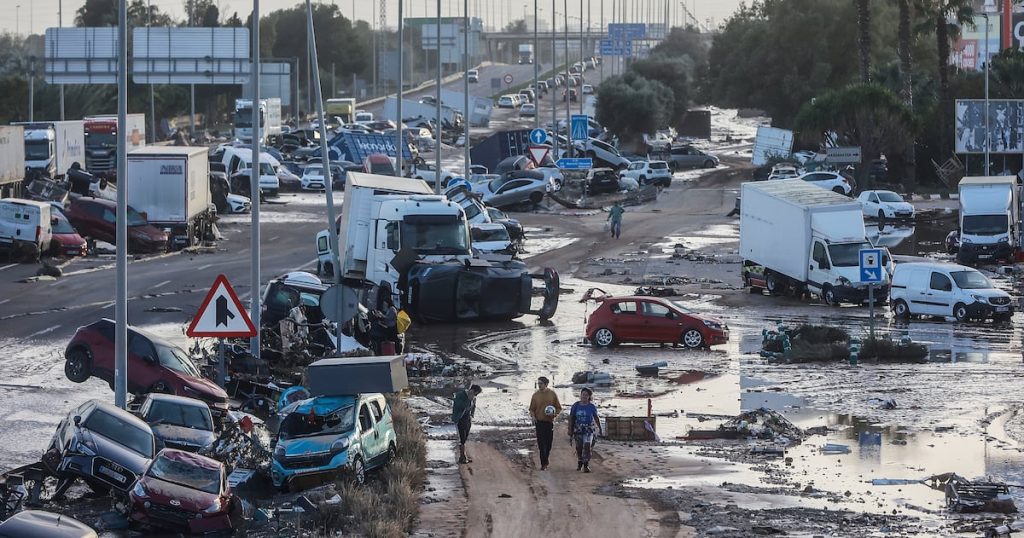The President of the Generalitat of Valencia, Carlos Mazón, has requested assistance from the Ministry of Defense and the available Army personnel on land, sea, and air to assist in logistics and distribution of aid to the population affected by the dana. The request was made through social media and was followed by a message clarifying that a unit of the Emergency Military Unit (UME) will be deployed to work during the day. The UME already has over 1,200 personnel in the affected areas, which have been struck by the worst natural disaster in Spain in the 21st century. The death toll in the Valencia region has risen to 155, with additional fatalities reported in other regions. Concerns about lack of assistance in affected areas have been raised, with reports of people living among corpses in homes in some municipalities.
The aftermath of the dana, which has brought strong rains, winds, and tornadoes, has caused significant devastation across Valencia. Houses have been flooded, roads destroyed, cars overturned, and mud covering the landscape. A total of 77,000 homes in Valencia are without electricity, and the magnitude of the disaster is still being assessed. The rescue efforts have so far saved around 2,500 people, with the government mobilizing over 1,000 UME personnel, 1,800 national police officers, and 750 Civil Guard agents to the affected areas. The military has been working alongside local authorities to provide assistance, as communities struggle to cope with the aftermath of the disaster.
The impact of the dana has been felt beyond Valencia, with casualties reported in other regions due to extreme weather conditions. The heavy rains have caused rivers to overflow, destroying properties and claiming lives. Authorities have apprehended individuals engaged in looting in affected areas, with businesses looted during the chaos. Efforts to restore normalcy and aid the affected populations are underway, with plans for financial assistance and support for those who have lost important documents or dependents. The transportation infrastructure has been severely affected, with major roads and railways damaged.
Government officials, including the Prime Minister and regional leaders, have visited the affected areas to assess the situation and provide support. Plans for financial aid and reconstruction efforts are being discussed, with emergency declarations expected to be made for the affected regions. The coordination between regional and national authorities is crucial to ensure a comprehensive response to the disaster. Despite challenges and delays in assistance delivery, efforts to provide relief and assistance to those affected are ongoing, with a focus on finding missing individuals and reconstructing the affected areas.
The response to the dana disaster highlights the need for effective coordination between different levels of government and agencies in emergency situations. Authorities are working to address the immediate needs of the affected population and to assess the long-term impacts of the disaster. The mobilization of resources, including military personnel and emergency services, is essential to provide timely assistance to those in need. The resilience and solidarity of communities affected by the disaster are being tested as they rebuild and recover from the devastating impact of the dana.


